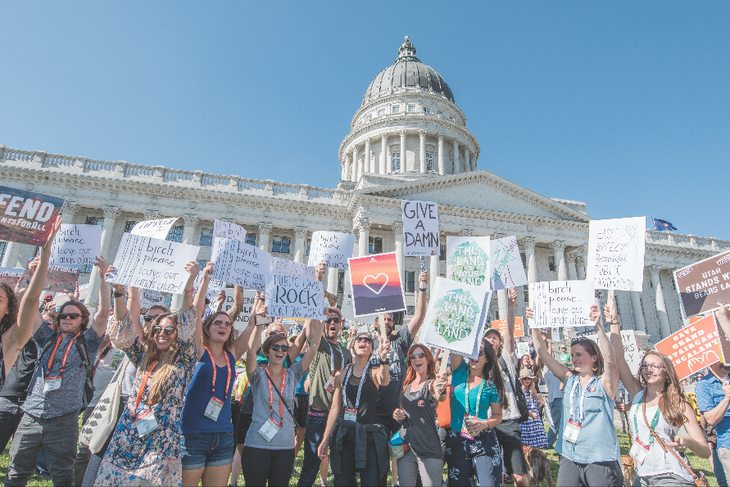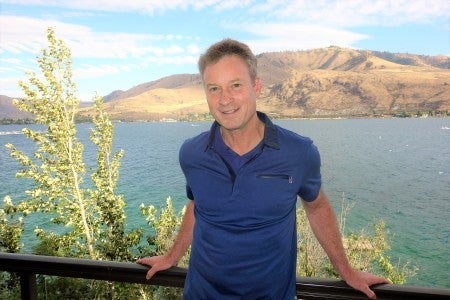Pulitzer Prize-winning reporter, columnist, and author Timothy Egan spent years covering the West—past and present—as a correspondent for The New York Times. His books have covered everything from the origins of the U.S. Forest Service to exploration of the Pacific Northwest to the Dust Bowl, true crime, and Irish revolutionaries. At the Conservation Alliance Breakfast last Tuesday during Outdoor Retailer Summer Market 2018, Egan chronicled America’s public lands from the beginnings of President Theodore Roosevelt’s conservation efforts to the most recent attacks from President Donald Trump. We caught up with him for some perspective on why we need to step up our focus on public land protection.
What do you hope people take away from your talk at the Conservation Alliance Breakfast?
I’d like people to know how powerful they are, and how little they use that power. Lovers of the outdoors, users of the outdoors, and friends of nature and conservation far outnumber the opponents. Just to give one example: there are an estimated 45 to 60 million active birdwatchers in the U.S.—or “birders,” as they prefer to be called—contributing more than $40 billion annually to the U.S. economy, and yet you don’t hear much about this when we talk about opening up public lands for more oil and gas leasing. Also, this story of saving our last, best wild places is an amazing story, going back to the 19th century, through Teddy Roosevelt’s great triumphs in the 20th century, on up to the present day. It’s in our DNA, and it should be as well-known as the Declaration of Independence.
How could President Trump’s decision to shrink national monuments affect the future of public lands designation and protection?
Trump’s shrinking of national monuments was the largest rollback of public land protection in our history. Let’s stop for a second and think about that. As Patagonia wrote, the administration took our land. But I believe the courts will overturn him. If not, this act will become a centerpiece in the fight over the public land inheritance of every American.
What do you think is the greatest threat President Trump poses to the environment?
Trump is turning back the clock while also turning his back on the majority of people who favor public land protection. Right now, he’s doing real and lasting harm, with everything from climate change [denial] to trying to prop up failing coal plants. He needs to hear from the majority of people who are not with him on this.

What is the outdoor industry’s role in the fight to defend public lands?
I couldn’t be more impressed with how the outdoor industry has stepped up in this battle. When Patagonia took a strong stand after Trump shrunk the national monuments in Utah, it had a powerful ripple effect. Near as I can tell, it did not hurt the company’s bottom line. It probably helped it. In that sense, Patagonia showed other entities how to step up and represent the voice of its customers and fellow lovers of the outdoors, without getting stepped on. For too long, the outdoor industry had been a sleeping giant. It is sleeping no more. The outdoor industry far outstrips every other user of the outdoors on economic impact. But its political impact has yet to be felt—until now. And we’ll see it in the next two elections.
What would happen if the federal government adequately funded the park system? What could a truly healthy network of public lands do for the United States?
The parks, as everyone knows, are our crown jewels—and a huge economic generator. Just look at the guest books at the major parks in the West and you see people from all over the world—in some cases, a majority of visitors are from overseas—coming to see what no other place has. And yet, we grossly undervalue them. The budget has not changed much over the years. The maintenance backlog is huge. Following the National Park’s Centennial, they just had record visitation. People love them. The solution is not to charge people more for what they already own, [as the Trump administration suggested earlier this year]. The solution is to see the parks for what they are, and value them as such in the federal budget. I would triple the budget if I could, and it would still be a great deal for taxpayers.


